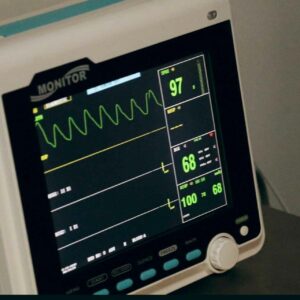Register Your Interest
Register your interest in the course. When we schedule dates, we will be in touch.
Develop the skill and competence to write technical reports in the pharmaceutical, biopharmaceutical and medical device industries
Register your interest in the course. When we schedule dates, we will be in touch.
Learn more about the course by toggling through the tabs below. Scroll down to view the agenda, trainer info and who should attend.
The quality and clarity of written technical documents is important for the success of pharmaceutical companies. Such documents are used in regulatory submissions, to report the outcome of development work to clients, to record the results of investigations and to guide the direction of internal projects. They also act as important repositories of knowledge and often provide useful insights for process and quality improvement.
In this training course, you will learn how to analyse and present technical data in a clear and concise manner. The use of visual tools such as graphs and flow charts will be covered, together with the design of effective tables. Statistical tools for data reduction and analysis will also be discussed and the elements of effective procedures and protocols will be explained. After the course, you will have the confidence to tackle technical report writing in the workplace.
With the Educo Post Learning Implementation Plan (PLIP) you will have the framework to apply and implement the knowledge acquired in the training, supporting you in your development. Learn more about how we deliver online and classroom training.
You decide what format is best for you. The course is delivered as a classroom (in-person) course that is also delivered online. If you cannot make the in-person course, you can attend online. The price is dependent on the option.
We recommend visiting our website to learn more. Click here to learn more about hybrid training at Educo Life Sciences.
Find out when this course is running so you can plan your training. Scroll down to view the full agenda.
2-Day Hybrid Training
Register at the top of the page, selecting either classroom or live online.
If you want to train a small group, we offer a group discount between 5% and 50% depending on the course and number of attendees.
For a quote, complete our contact form by following the link. Get in touch.
We also design and deliver fully customised team training focused on your products, processes, technologies and challenges. This is ideal for specific training requirements or larger groups. Please get in touch with us for more information.
For more information, complete our contact form by following the link. Get in touch.
Learn more about the course by toggling through the tabs below (trainer, agenda, who should attend?)
Pre-course
Action Plan
9:00 – 16:00
Regulatory expectations
Introduction to Technical Writing
Brevity and clarity
Report structure
Conventions in scientific writing
Common mistakes in written English
Paragraphs and sentences
Abbreviations
9:00 – 16:00
Statistical methods
Presenting data
Representing processes
Writing effective procedures

Dr. Mark Powell is a Fellow of the Royal Society of Chemistry (RSC) with over 30 years’ experience as an analytical chemist. In 2003, he helped to set up a UK-based contract research and manufacturing company specialising in early-stage drug development, where he ran the analytical development programme. His responsibilities included commissioning and validating laboratory data systems and training staff.
In 2013, he set up his own company which offers training and consultancy services to the pharmaceutical industry. These include guiding the CMC aspects of drug development programmes and training in areas such as chromatography, dissolution testing, data integrity, method development/validation, analytical instrument qualification, technical writing and auditing.
Mark has delivered many training courses on technical writing; he was responsible for training his team whilst in industry and has continued to train professionals as a consultant. He has trained both English speaking and non-English speaking people, helping them master technical report writing so they can create concise and meaningful reports. Mark draws on his extensive experience of technical report writing and provides multiple examples throughout the course.
This course is aimed at professionals who write and maintain technical reports in the pharmaceutical, biopharmaceutical and medical device industries. These include:
 Select options
This product has multiple variants. The options may be chosen on the product page
Select options
This product has multiple variants. The options may be chosen on the product page
 Select options
This product has multiple variants. The options may be chosen on the product page
Select options
This product has multiple variants. The options may be chosen on the product page
